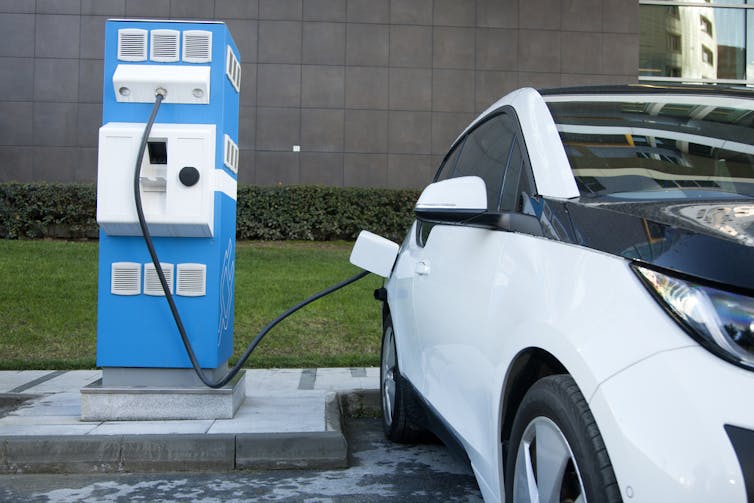Cornwall, on England’s south coast, is best known these days for surfing and sandcastles. But for centuries it was world famous for its tin and copper mines. Now, a recent discovery could see a mining boom in the county once again – and the whole UK should benefit.
On January 19, the British company Cornish Lithium entered into an agreement with Canada’s Strongbow Exploration to explore and potentially develop lithium mining in Cornwall. This is just a first step and it may be years before any lithium comes on stream, but it’s worth taking a look ahead.
Lithium is a light and shiny silver metal with high conductivity which makes it ideal for use in products such as batteries. Since lithium has been the hottest commodity of the past year, a new domestic supply could help the UK become a global player in the burgeoning electric car market.
While most commodities faced price declines over the past few years, lithium has been on the rise. Until late 2015, it hung around the $6,000 per tonne mark but it has since surged due to a rise in demand. By mid 2016, the price had more than tripled to over $20,000 per tonne.
Demand for lithium is driven by the growth in electric vehicles and renewable energies, besides ongoing demand from ceramics and glass. The metal is a key ingredient in the Li-ion batteries needed to run new electric vehicles and consumer gadgets such as mobile phones, laptops and cameras. Chinese megacities are also getting serious about electric bikes, scooters and vehicles to combat air pollution, and Tesla’s order books for the recently announced Model 3 are swelling.

Goldman Sachs expects 20.5m electric vehicles to be sold globally between now and 2025 – almost 10m more than it expected one year ago. The industry’s lithium consumption will increase fivefold.
Chemical companies that process raw materials for batteries will benefit, and so could the Cornish lithium miners, if they manage collaborations with such companies. However, the next few years are likely to be a preparation for this “take-off”, rather than a rapid scale up.
Things are more uncertain in the medium term – consumers may lack confidence in the next generation of electric vehicles, and car makers are likely to advertise more traditional models and lobby against new regulation until they are “ready-to-go”. Consequently, the lithium industry won’t enjoy much certainty – for now.
However, the outlook is promising – speakers at a Goldman Sachs low carbon event stated that not even the changing US policy landscape under President Trump is likely to alter the core market forces driving the growth in electric vehicles. They forecast a transformative tech shift, with electric vehicles adding to the momentum in energy efficiency, solar PV and onshore wind.
But markets change fast and there is a huge risk of high-tech disruption and vulnerabilities as suppliers are manifold, often small, and conducive to risks of both finance and regulation. Changes in the supply chains will affect many automotive suppliers, the chemical and oil industries, and potentially the steel industry, too. With headwinds expected from China, Japan and other countries, companies will have to accelerate efforts to access these markets, and stretch out to new miners and suppliers across the world. But a robust industrial strategy across all these sectors should benefit Cornwall and the UK.
While lithium may be a crucial ingredient in these batteries, the good news is that it only makes up a small share (around 3%) of production costs. Even if prices continue to be volatile – a consequence of rapid development in risky regions and sectors – it shouldn’t affect batteries too much.
Environmental considerations
Lithium is usually extracted from brine (salty water) found in salt flats. The process involves using large amounts of water and chemicals, with severe consequences for these sensitive ecosystems.

Miners in Cornwall hope to produce lithium from hot spring brines while using geothermal energy extracted from these springs, which could drive processing costs down.
But the project will not be without risks, including the possibility that radioactive radon could be released from granite. Also lithium recycling is not (yet) feasible, but recovering other materials from batteries such as magnesium, mercury and zinc may well trigger recycling efforts.
Cornish Lithium must now begin the crucial task of getting local people and other stakeholders on board – what’s known as a social license to operate. Cornwall already benefits from a thriving tourist industry. However, its centuries-long history as a mining region means it may well cope with the associated challenges. It has the potential to become a wellspring of new industrial activity, and Britain’s first lithium boom.

